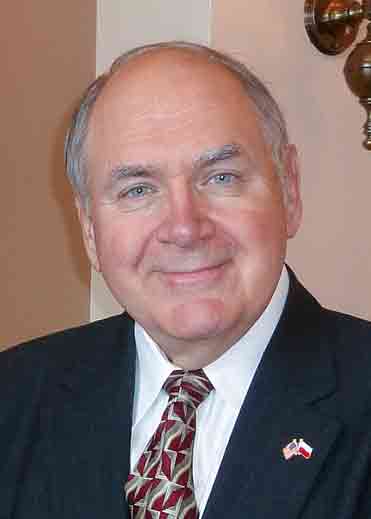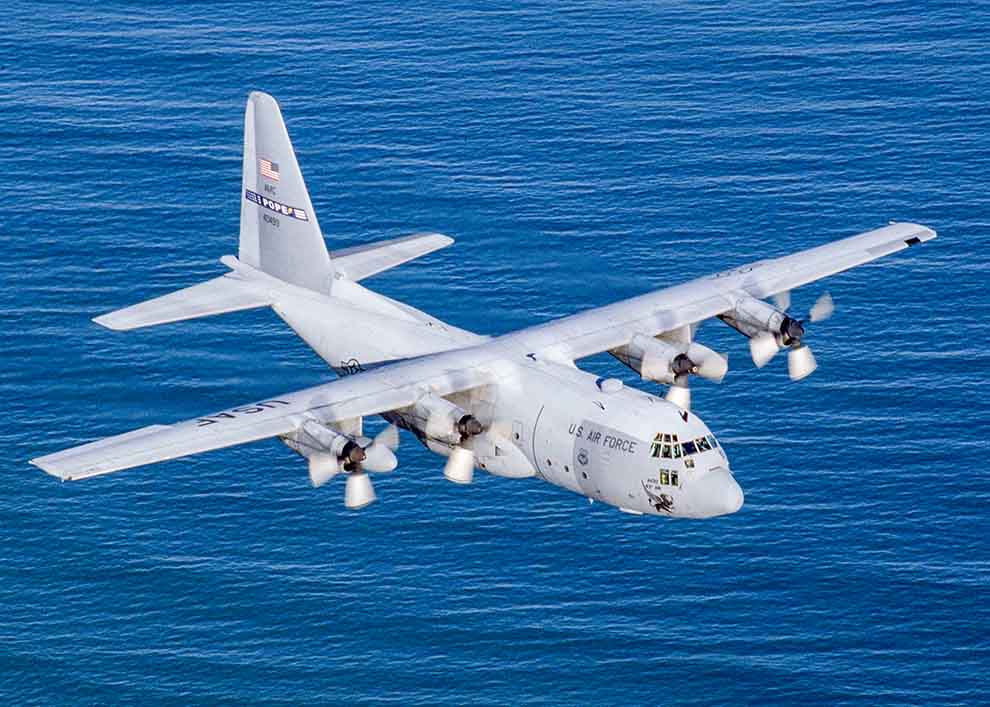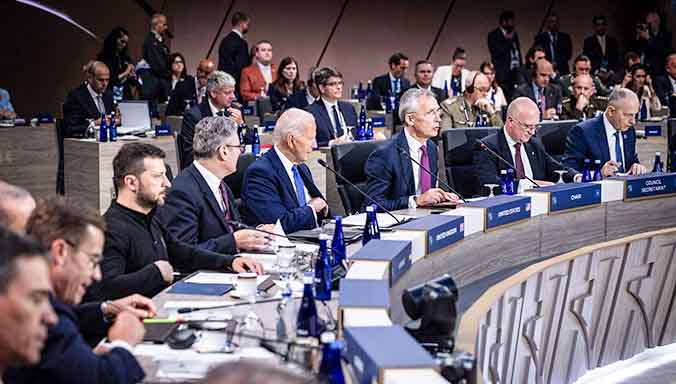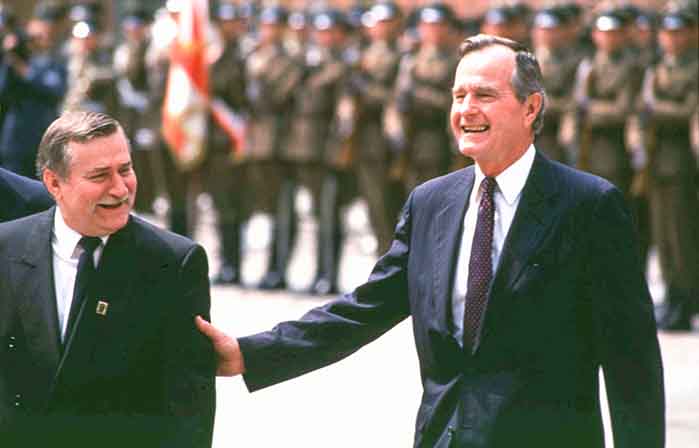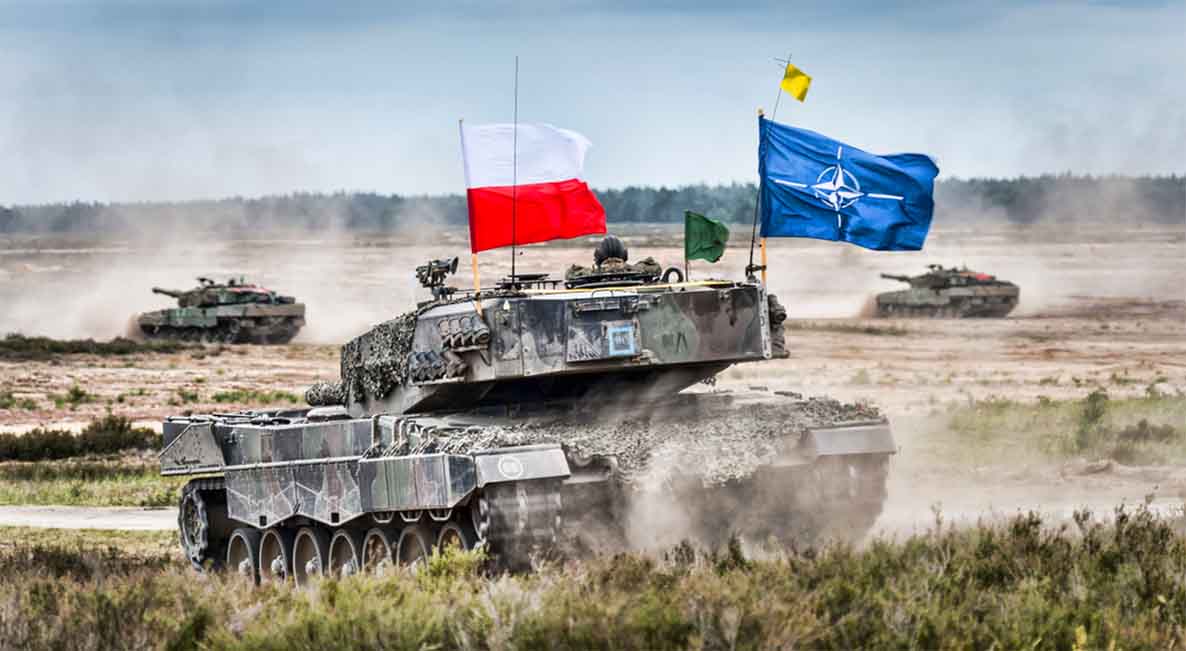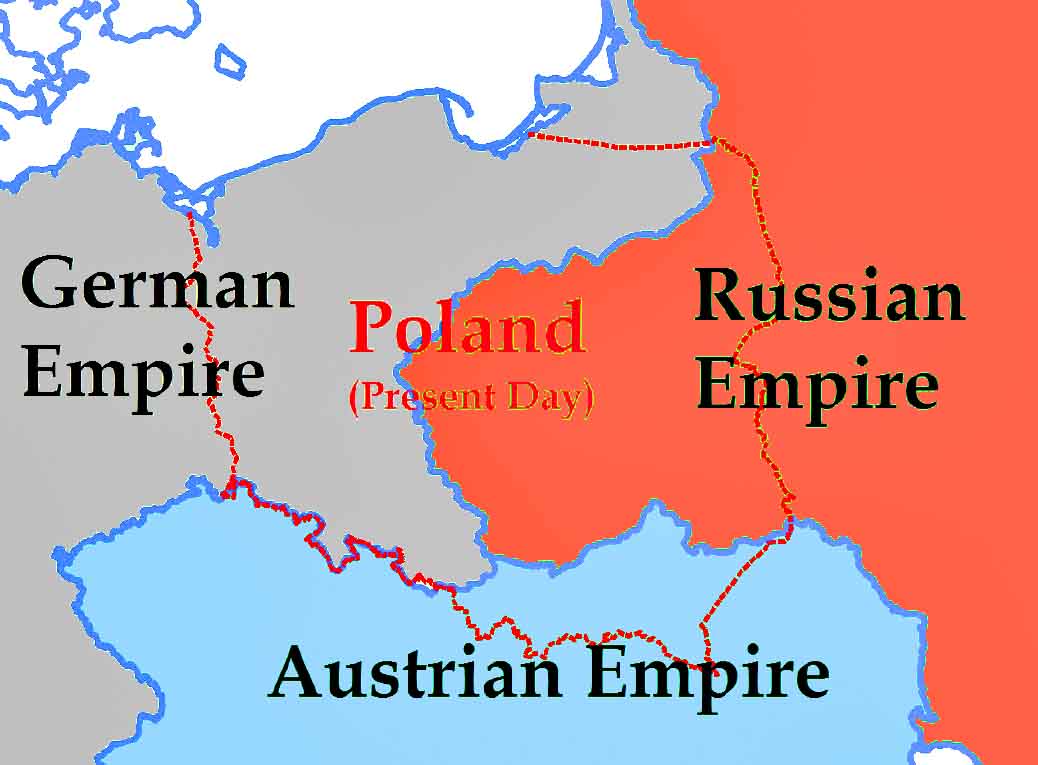Professor Emeritus Donald Pienkos, was active in helping to bring about Poland's entry into NATO in 1999. He was invited by Consul General Pawel Zyzak of the Republic of Poland in Chicago to speak at the 25th Anniversary Ceremony marking the admission of Poland, Hungary, and the Czech Republic into the Alliance. This event was on March 12, 2024 at the President Truman Library in Independence, Missouri. His remarks follow.
It is a distinct privilege to speak at this Silver Anniversary of the entry of Poland, Hungary and the Czech Republic into the NATO alliance. It is most appropriate that this gathering is at the Presidential Library that memoralizes Harry S. Truman. For it was President Truman who fathered the NATO alliance 75 years ago.
Who am I to address you today? Fair question! So many others were active in bringing about the expansion of the NATO alliance in 1999. We salute them all!
Back in the 1990s, I was teaching International Politics at my university in Milwaukee. But my academic work was deepened by my concern for the people of East Central Europe and for Poland, the land of my grandparents.

NATO Summit in Vilnius, 2023
I was active in the Polish American Congress, which from its founding in 1944 had worked for the freedom, independence and well being of Poland and its citizens. Indeed, the Congress was the first American organization to denounce the Great Powers' decisions at Yalta as a betrayal of both their World War II ally, Poland, and the mission of the Atlantic Charter, which affirmed the territorial integrity of all states small and large. In August 1980, the Congress supported the Solidarity trade union movement, just days after its birth. And in Fall 1989, a delegation of leaders of the Congress headed by its President Edward Moskal was in Poland to affirm the Polish American community's support for Prime Minister Tadeusz Mazowiecki's newly created post communist government.
Furthermore, in 1992, the Congress formally backed Poland's entry into the NATO alliance, which it recognized as vital to its future prospects.
However, after the collapse of the Soviet Union in 1991, there were influential people who thought otherwise. Some proposed dissolving NATO since the Cold War was over. Others agreed to maintain the 16 member Alliance but opposed its expansion.
Poland's new government, headed by its President, Lech Walesa, saw things very differently. They knew Poland's and its neighbors' history and understood how important NATO membership was to their national security and as a symbol of their inclusion in the great transatlantic community of free nations.
In supporting this view, the Polish American Congress organized a campaign in December 1993 to make President William Clinton aware of its position. Its members barraged the White House with thousands of telegrams, letters, postcards, e-mails and phone messages calling for NATO expansion. The effort worked and got the President's attention.
And here is where I came into the picture.
It was Monday January 2, 1994. I was at my University preparing for the Spring semester when I got a surprising call from the White House. I was told that President Clinton was to speak in Milwaukee on U.S. foreign policy that Friday and that a substantial number of Polish Americans needed to be invited to attend this last minute event. Could I put together a list of local Polish Americans with their telephone numbers and fax it to Washington as soon as possible? Yes I could. And Yes I did.
That Wednesday I got another call from the White House. Would I be able to attend a meeting the next evening at the Pfister Hotel in anticipation of the President's visit? I agreed and that Thursday, January 5, I was one of 18 guests - nine of us Polish Americans - among them President Moskal, the Polish American Congress' Executive Director Leszek Kuczynski, Jan Nowak of Radio Free Europe, and Professor Stan Blejwas from Connecticut. Five members of the Hungarian American community were there, along with two each from the Czech and Slovak American communities. From Washington came Alexis Herman - who would later be U.S. Secretary of Labor, Deputy National Security Advisor Samuel Berger, and the State Department's Daniel Fried - later, U.S. Ambassador to Poland, plus a bevy of staff persons.
Following dinner, Ms. Herman opened our discussion by simply asking us "What's on your mind?"
What followed was amazing - for the next two hours everyone who spoke, including me, called on the Government to support NATO expansion. Folks handpicked by the White House and together for the very first time were all speaking with one voice. Significantly none of our White House hosts said a word.
Around 10 p.m. Ms. Herman rose to remind us of our meeting with the President following his public address the next morning. Was the meeting over?
No. President Moskal rose to say that he and several others had not yet had the opportunity to speak. Ms. Herman sat down and Moskal then succinctly condemned the Administration's failure to support NATO expansion, calling it nothing less than a "second Yalta." His words brought a quick response from the till then silent White House delegation. "No don't say that!" It was as if Moskal had placed their fingers into an electric socket. Our discussion then continued past midnight. As we adjourned, President Moskal, Professor Blejwas, and I noticed that the White House people and their staff were staying put. Were they revising the President's speech for the next morning?
On Friday morning, January 6, 1994, Vice President Albert Gore, subbing for President Clinton whose mother had just passed away, spoke to some 1,000 people - over 200 of them Polish Americans. There he used words and phrases from our meeting the night before. NATO expansion, he implied, was indeed on the table. When our group met with Mr. Gore after his speech, we covered the same ground as the night before. At the end he invited us to the White House to meet with the President after his return from his trip to NATO headquarters in Brussels.
On March 2, 1994, we had that meeting. It was very frank. At the end, Mr Clinton said something that hit me hard. He declared, "The door to NATO expansion is open." Really?
How significant was our Milwaukee meeting? In January 1998, Mr Nicholas Rey, our former U.S. Ambassador to Poland, was in Milwaukee. His mission was to win over critics of NATO expansion - in Wisconsin and around the country. I hosted a luncheon for him attended by dozens of community leaders. There as we exchanged luncheon pleasantries I mentioned my participation at the January 5, 1994 meeting. He dropped his knife and fork and turned to me. "You were there! They were talking about that meeting for six months in Washington! You folks had a big impact in changing our country's foreign policy!" Then he added. "Well not only you!"
He was right. So many others had made the case for NATO enlargement. Madeleine Albright who would be Secretary of State in 1999 and General John Shalikashvili, Chairman of the Joint Chiefs of Staff. Professor Zbigniew Brzezinski. U.S. Senators Barbara Mikulski of Maryland, Hank Brown of Colorado, Paul Simon and Richard Durbin of Illinois, Richard Lugar of Indiana and many many others.
Myra and Casimir Lenard of the Polish American Congress in Washington, DC. had played a key role too. Together they worked with our fellow Americans of East Central European origins to create the Central and East European Coalition. Its 19 organizations brought together 13 different nationality groups to express the support of 20 million Americans for NATO expansion. Their lobbying efforts focused on the 100 members of the Senate of the United States since a two thirds vote of that body was required to amend the NATO treaty and enable its expansion.
Special thanks here go to Edward Moskal, who was engaged in the expansion effort for seven full years. I will never forget how he electrified that January 5, 1994 meeting! And to President Clinton - a Chief Executive who listened. And who acted.
One last personal memory. In early 1998, I had the chance to work with Ryszard Sarkowicz, Poland's Consul General in Chicago, and with members of the Wisconsin State legislature to win a joint resolution in support of NATO expansion.
Did that vote mean much?
Well, on April 30, 1998 both of our U.S. Senators, Herb Kohl and Russell Feingold voted for NATO expansion. The Senate vote was 80-19. And in the fourteen states where the Polish American Congress was most active, the vote was 26-2 for NATO enlargement. Obviously, lots of other folks were doing similar things around the country.
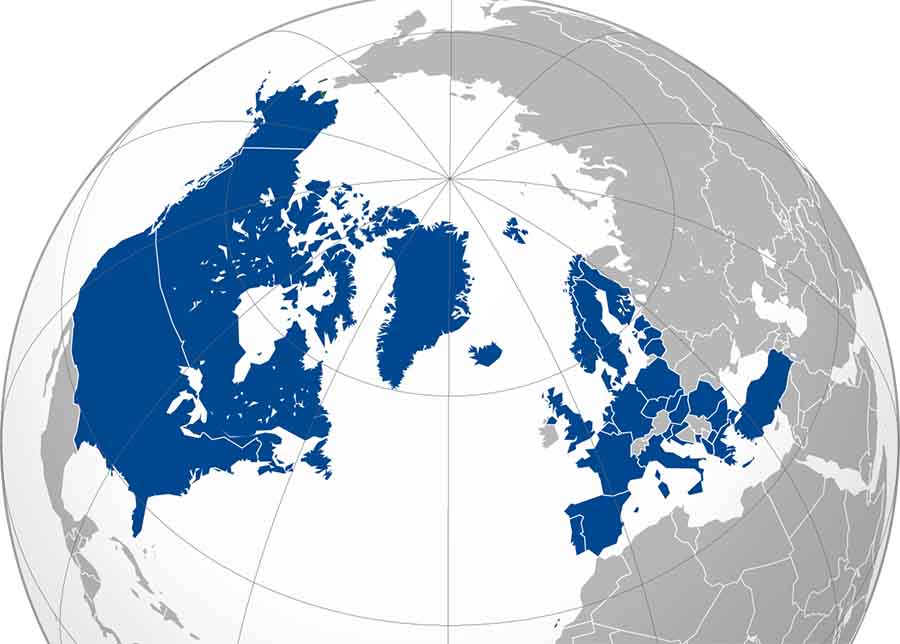
NATO countries (in blue) in 2024 (Source: Wikipedia)
Today, we look back with pride at this singularly great achievement. Three countries whose citizens had courageously ended Soviet domination and without violence had joined NATO - ten long years after the extraordinary events of 1989.
NATO expansion represented a victory for peace, progress, solidarity, and national security, one that began a process of NATO expansion that today unites the citizens of thirty-two very diverse countries around the principle of collective self defense. NATO is the shield defending the lives and hopes of 950 million people. In Europe. In North America.
In short NATO matters. It mattered in 1949. It mattered in 1999. It matters today.
Thank you.
Participants at the January 5-6 Milwaukee meetings:
- Czech Americans: Mojmir Povolny and Leopold Rozboril
- Hungarian Americans: Edith Lauer, Laszlo Hamos, Andrew Ludanyi, Laszo Papp, Peter Ujvagi
- Slovak Americans: Charles Chabron, Andrew Rajec
- Polish Americans: Edward Moskal, Jan Nowak, Leszek Kuczynski, Helen Wojcik, Delores Spejewski, Donald Versden, Lawrence Leck, Stanislaus Blejwas, Donald Pienkos.



